BMW is not letting go of hydrogen any time soon
Last week saw BMW X5 Hydrogen enter production at the Munich factory and with the world racing towards battery power, you may ask why would BMW waste time and resources on manufacturing a vehicle that nobody wants? It turns out BMW, and few other companies, believe there are customers out there who do want a hydrogen-powered car and they believe the hydrogen market is about to get busy.
BMW and hydrogen go a long way back - all the way to 2006 E65 and E66 7 Series. That was BMW’s first venture into the world of hydrogen power. The company built 100 units of the 7 series equipped both with gasoline and hydrogen tanks. The car was simply using hydrogen in its 6-liter V12 instead of gasoline with rather woeful results - it was burning 50 liters of hydrogen for every 100 km and its range was a miserable 80 km. But it was just a first step.

BMW realized fuel cells were the way forward and with Toyota’s help created a 5 Series Gran Turismo in 2015. That car had enough room for large hydrogen tanks that offered a decent range. Then the experimental i8 followed, powered by the same technology but that car was only an internal development vehicle.
Fast forward to 2022 and we have another low volume production starting. This time it is a BMW X5 which is assembled in Munich around a chassis manufactured in the US and then shipped to Germany. The car uses a rear electric motor from the BMW iX and gone is the gasoline engine replaced with two large hydrogen tanks and fuel cell.
 BMW i8 Hydrogen
BMW i8 Hydrogen
One tank goes into the prop shaft tunnel and the other sits under the rear seats, the engine bay is taken over by the fuel cells. Everything is manufactured in-house apart from the fuel cells themselves which come all the way from Japan. Many parts are 3D printed but everything else is just normal, low volume vehicle manufacturing.
The result is a 374 hp X5 capable of 0 to 100 km/h in less than 7 seconds with top speed of 190 km/h or 118 mph. Range is quoted at 310 miles or nearly 500 km which is not bad for a car that's nearly as big as the BMW iX.
 One of the hydrogen tanks going into the transmission tunnel of the X5
One of the hydrogen tanks going into the transmission tunnel of the X5
The question though is, why would BMW even bother making a hydrogen car? When the whole world is pushing for battery electric cars, only a handful of manufacturers are looking towards hydrogen. Many argue that hydrogen is best suited for heavy goods transport but BMW has no interest in that segment.
Thomas Hofmann is in charge of BMW's hydrogen fuel cell project and he claims it is all about choice. While the majority of the customers will go for the battery powered cars, he wants them to have a choice. Is there more to it though?
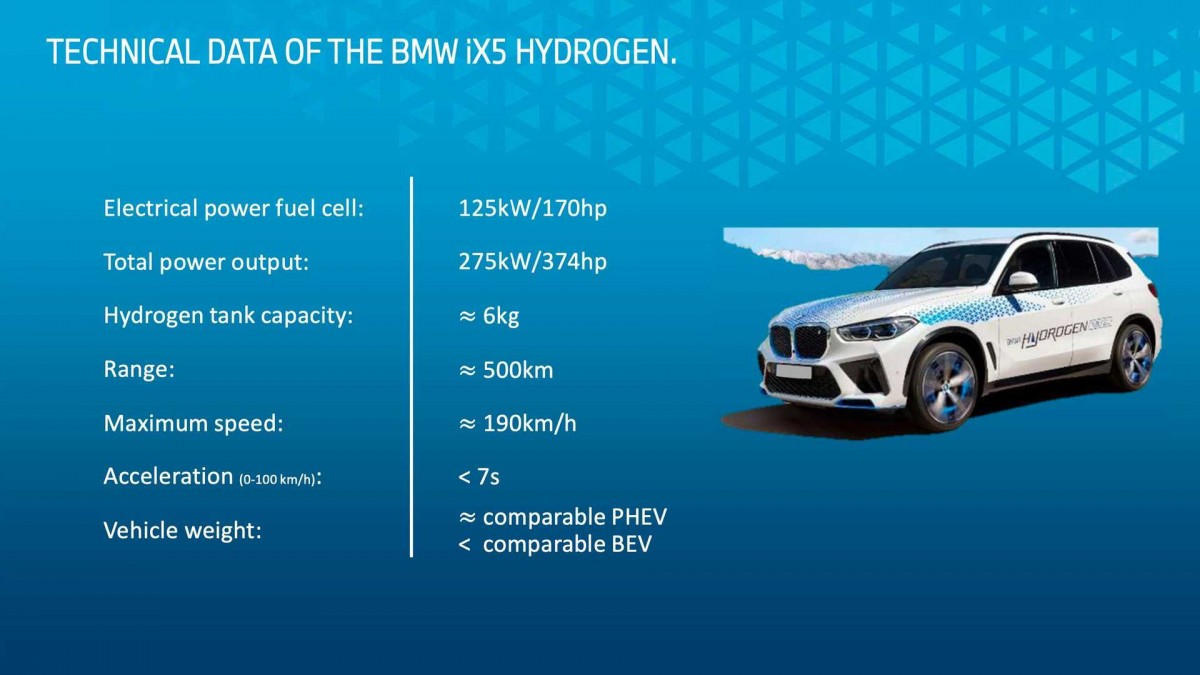
Although hydrogen proponents celebrated the 27% increase in fueling stations across the world, that number has to be put into a perspective. There are 80 hydrogen stations in the US with the majority of them in California, Europe and the Middle East have 230 together and Japan is clearly ahead of any other country with 160 stations. Altogether - less than 700 stations around the world, that is clearly a huge issue.
Then there are the green credentials - some companies claim hydrogen is way better than batteries, some say is way worse. The truth is as always, somewhere in the middle. Although there are “green” ways of producing hydrogen they aren’t the mainstream and the CO2 emissions are substantial. Transporting hydrogen alone produces a lot of CO2 as well but then extracting and transporting of raw battery materials is equally as bad.
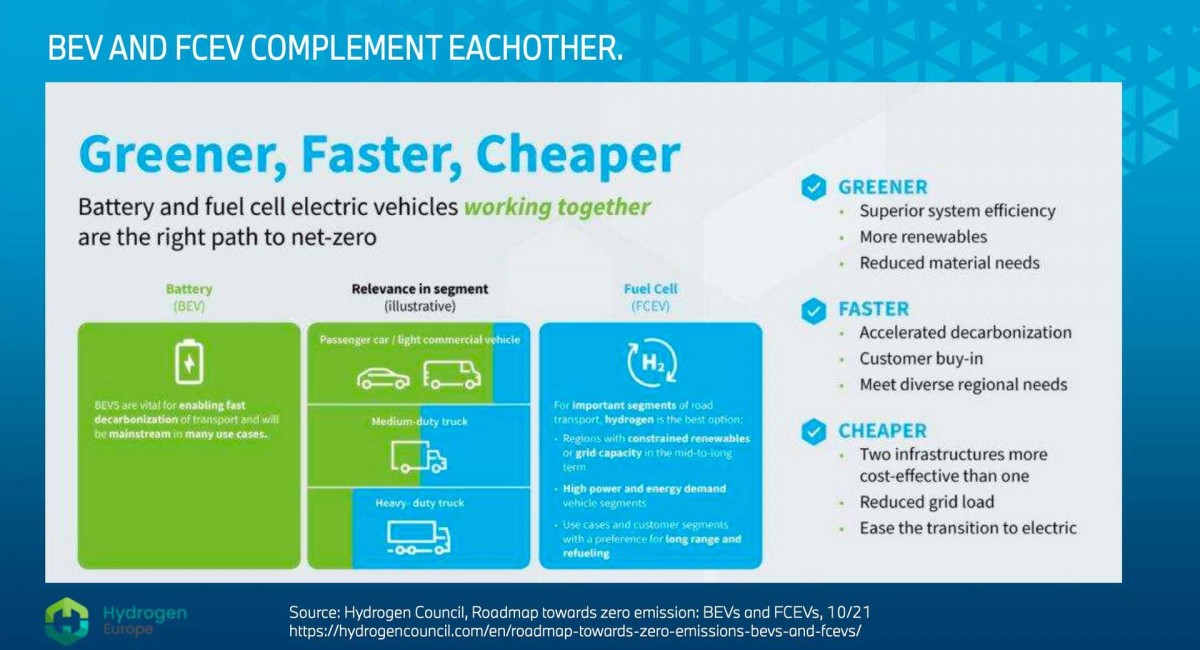 Which one is better - hydrogen or battery? None - they both work well together
Which one is better - hydrogen or battery? None - they both work well together
There is no viable hydrogen infrastructure in place and many battery electric cars proponents argue that hydrogen is dangerous. It isn’t more dangerous than LPG or NPG which is widely available across continents at petrol stations but its transportation is far more involved than that of LPG.
The answer to why BMW is sticking with the hydrogen may be in the emissions limits being pushed by governments. Many automakers realize that achieving the 2030 zero-emissions goals is bit more tricky than anybody wants to admit and hydrogen may offer the stop-gap solution in case we run into trouble developing battery technology.
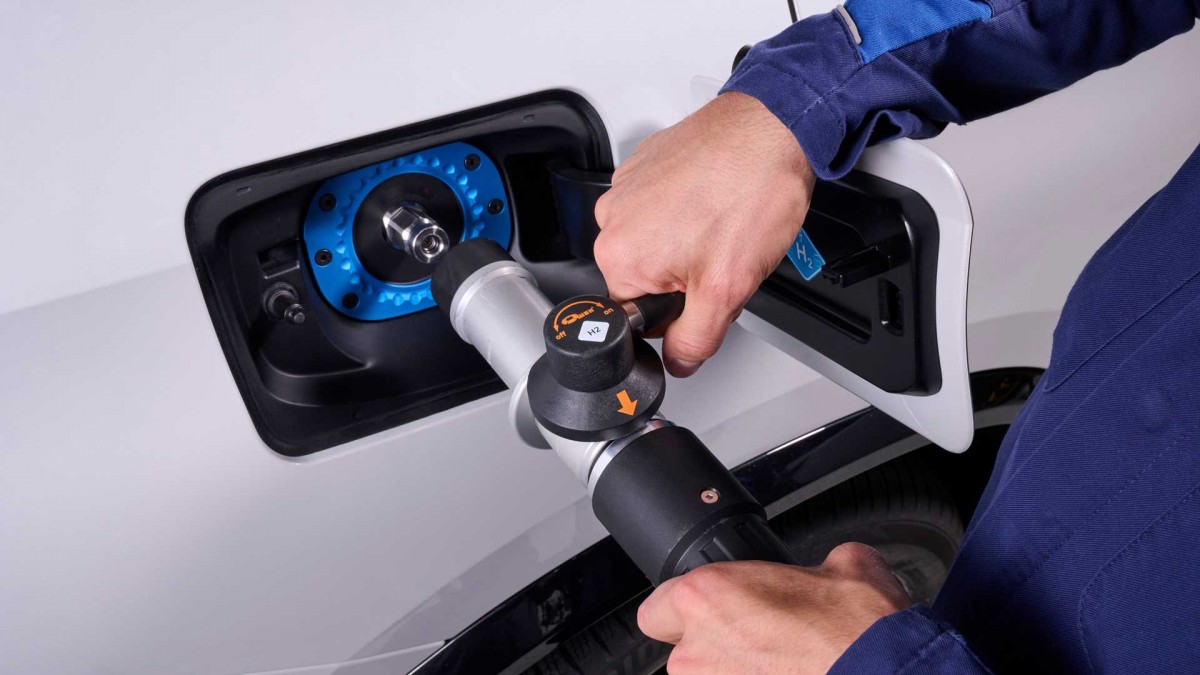 Filling up hydrogen car is as easy as filling up LPG tank
Filling up hydrogen car is as easy as filling up LPG tank
Global reliance on lithium has pushed its prices to extreme levels with demand only to grow, electric cars are becoming unaffordable and unless we have new battery technology such the sodium batteries, the targets set by governments will be unachievable.
Toyota, Hyundai, BMW and VW seem to believe hydrogen is about to experience exponential growth. VW recently announced it is extending the life of its MEB platform in favor of having a new replacement developed, just as it announced it has developed a 1,900 km hydrogen powered fuel cell. Honda is bringing a hydrogen version of CR-V in 2024. Do they know something we don’t?
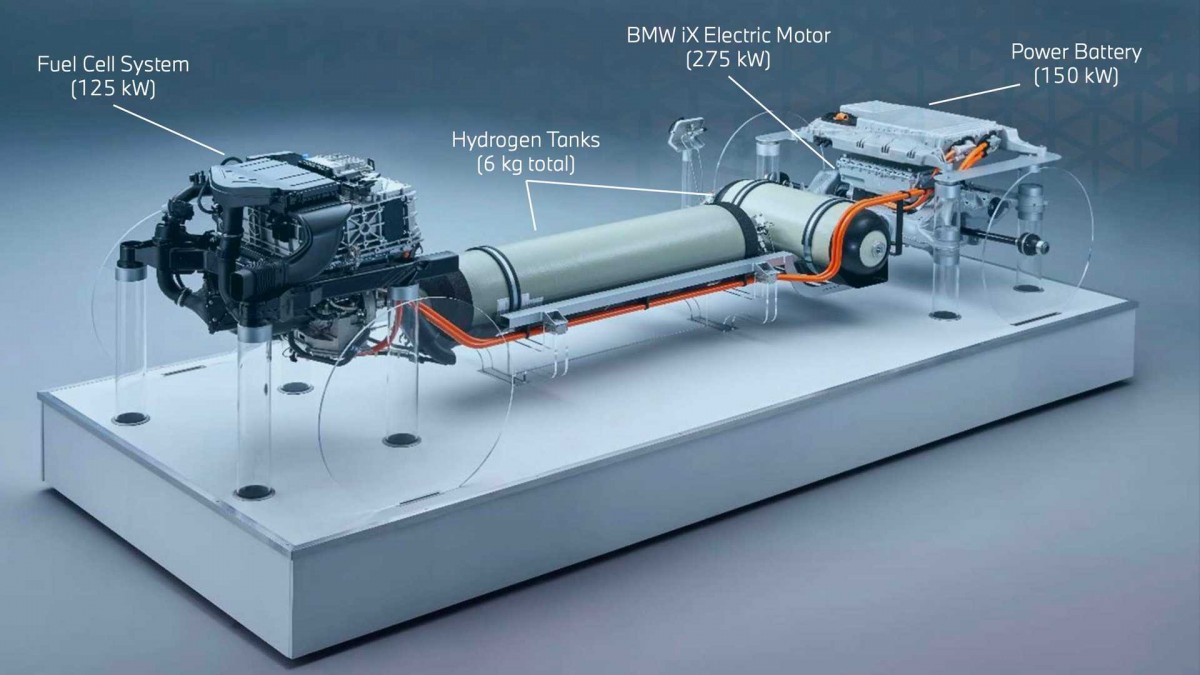 BMW X5 Hydrogen fuel cell and drivetrain
BMW X5 Hydrogen fuel cell and drivetrain
There is no argument at all that electric motors are far more efficient at powering transportation. How do we store electricity to keep them going - that’s another question. Batteries are heavy and for the foreseeable future will rely on expensive minerals that require CO2 demanding processes to extract. Hydrogen vehicles are no heavier than gasoline or diesel ones but manufacturing and transporting hydrogen means producing CO2 and a lot of it.
Sticking to hydrogen is simply a clever hedge for all the companies involved. Their development budgets still favor battery development but just in case the world starts to lean towards hydrogen - they will have an answer ready. Is hydrogen better than a battery? No. Is the battery better than hydrogen then? Absolutely not. Both should be looked at as potential solutions for different problems. Both should be developed further because both take us in the direction of a CO2-neutral future and that’s what we need. How we arrive there is less important than actually getting there.
Reader comments
- Anonymous
- g%8
What are you talking about? I really, really want hydrogen to come out as a strong competitor to batteries. I hate batteries with a fiery passion. They are always a perishable component when they aren't made from superconductors. That's jus...



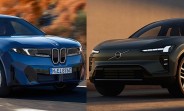

Facebook
Twitter
Instagram
RSS
Settings
Log in I forgot my password Sign up